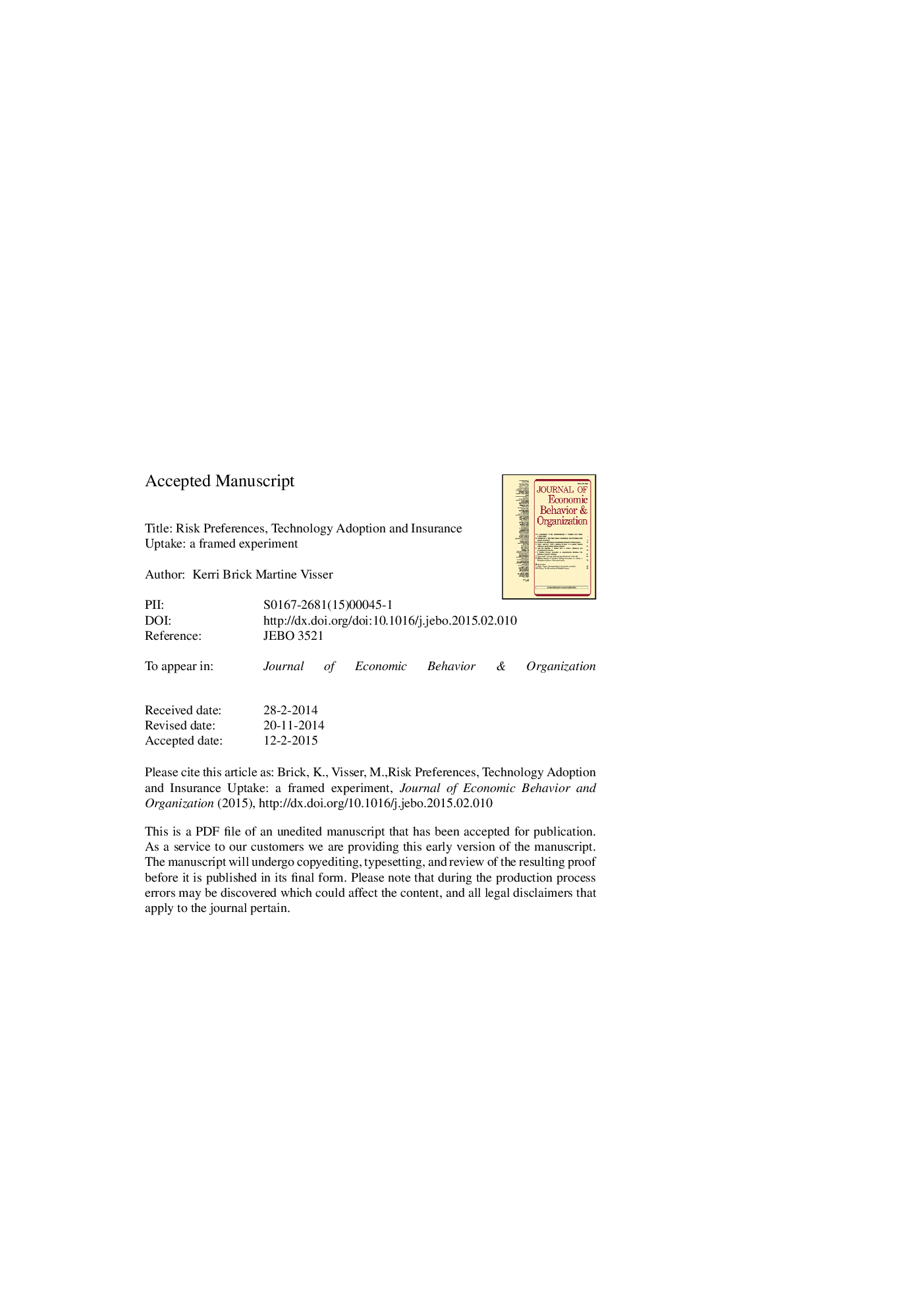| Article ID | Journal | Published Year | Pages | File Type |
|---|---|---|---|---|
| 7243018 | Journal of Economic Behavior & Organization | 2015 | 33 Pages |
Abstract
Despite the yield improvements associated with the adoption of new farming technologies and modern inputs, technology diffusion amongst small-scale farmers in developing countries is slow. In this context, given the inherently risky environments in which farmers in the developing world operate, poor households are thought to be caught in a risk-induced poverty trap; specifically, poorer households that are unable to insulate themselves from consumption risk avoid these risks by opting for lower return, lower risk agriculture, and thus do not benefit from technological innovation. Using a series of laboratory experiments in a South African setting, this paper examines whether the provision of a framed index insurance product induces individuals to opt into riskier but potentially more profitable activities. To do so, we use a simple gambling task with real monetary prizes to elicit subjects' risk preferences. Elicited risk preferences are applied to the uptake of credit and insurance in a series of framed insurance simulation games. Experiment participants are small-scale and subsistence urban food growers. Overall, the results of the experiment lend empirical weight to the poverty-trap argument. Firstly, a high degree of risk aversion is evident among the sample. Secondly, risk-averse individuals are more likely to opt into traditional agriculture (reflected as traditional seeds in the experiment) and are less likely to use modern farming inputs that require financing (high-yield varieties) despite the availability of insurance. The results indicate that the provision of index insurance is not a panacea for the problem of promoting technology diffusion to small-scale farmers in the developing world, but that residual production risk and basis risk must be considered in the contract design.
Related Topics
Social Sciences and Humanities
Economics, Econometrics and Finance
Economics and Econometrics
Authors
Kerri Brick, Martine Visser,
